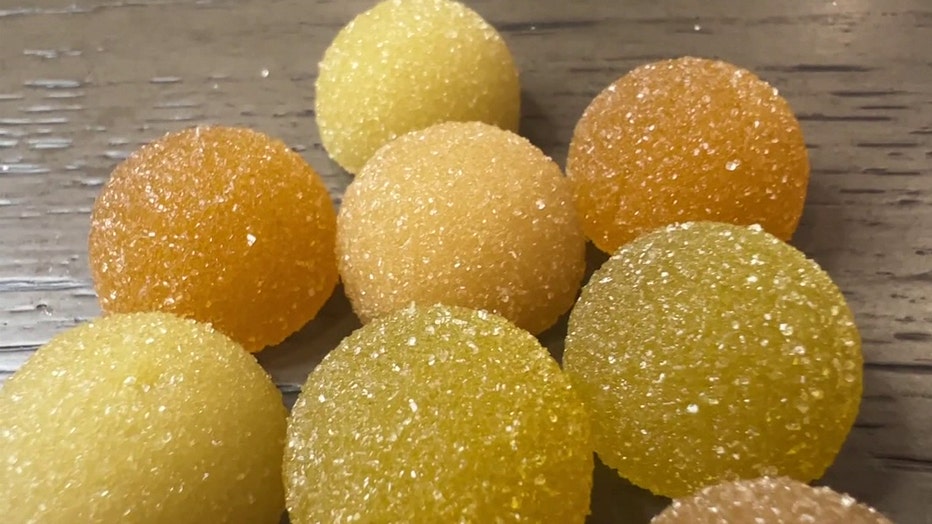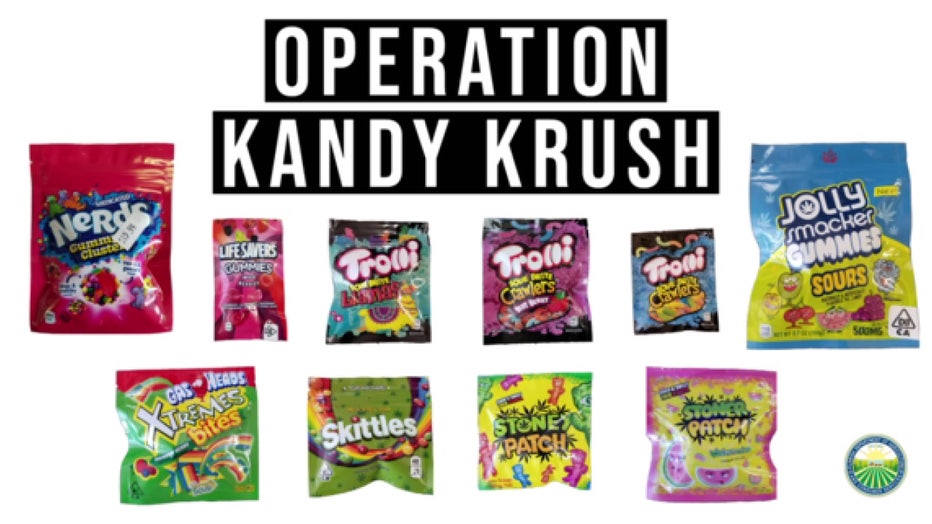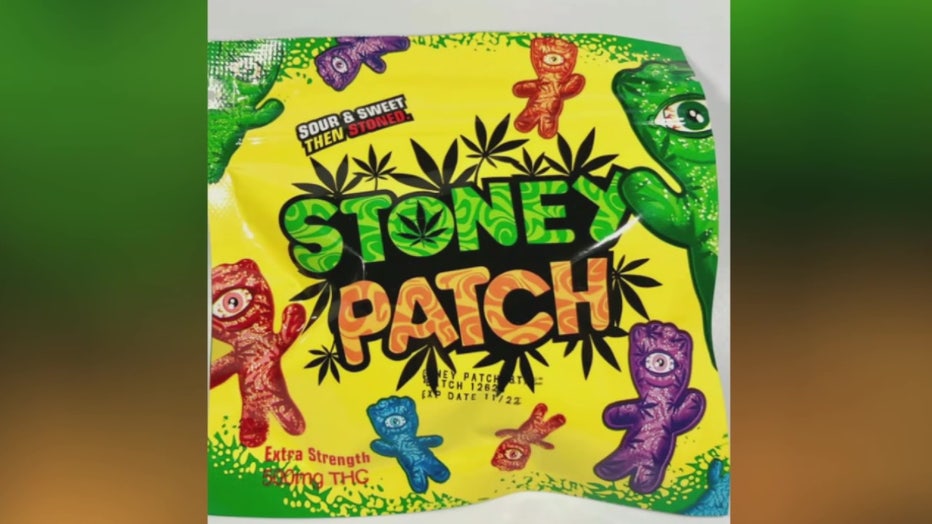475 Florida stores found illegally selling hemp products marketed to children in state operation
TEMPLE TERRACE, Fla. - Hillsborough anti-drug activist Ellen Snelling wanted to see for herself if a new state law had led stores to stop selling THC products marketed to children.
She was disappointed after visiting a store near her home in Temple Terrace, finding a package of gummies marketed to look like gummy worm candies often purchased by kids.

"Any child who saw this laying on a counter, they would eat probably the whole package and end up in an emergency room," explained Snelling.
READ: Flavored cannabis marketing is criticized for targeting kids
Last week, the state agriculture department found 475 stores illegally selling THC products that are marketed to kids. The packages are made to echo familiar packaging for candies like Nerds, Life Savers and Skittles.
"If you look up the packaging and see [it]," said Florida Agriculture Commissioner Wilton Simpson. "You'll see how disgusting it is, because this is completely targeting children."

The state agriculture department discovered that 475 stores were illegally selling THC products.
A law that went into effect July 1 bans sale of THC products to anyone under 21. It also requires them to not be in the shape of cartoons or animals and that they not be packaged to look like actual brands of candy.
A 139 of the stores found during the agriculture department's "Operation Kandy Krush," were in Tampa Bay, including 26 in Hillsborough, 45 in Polk and 18 in Sarasota.
"The way they were selling them, clearly should not have been going on with or without a state law," said Simpson. "[It] shouldn't take a state law to do the right thing."
READ: Hillsborough County deputies using new non-lethal device to help take people into custody

The packaging make THC gummies seem kid friendly.
The stores were given warnings for now, but they were required to destroy all of their illegal products, which the state said numbered about 70,000.
Snelling became an anti-drug activist after she saw her own brother die from an overdose and says THC is anything but fun.
"He started with marijuana," said Snelling. "And at the time, people thought it was harmless. People still do, but it just led to harder and harder drugs."


